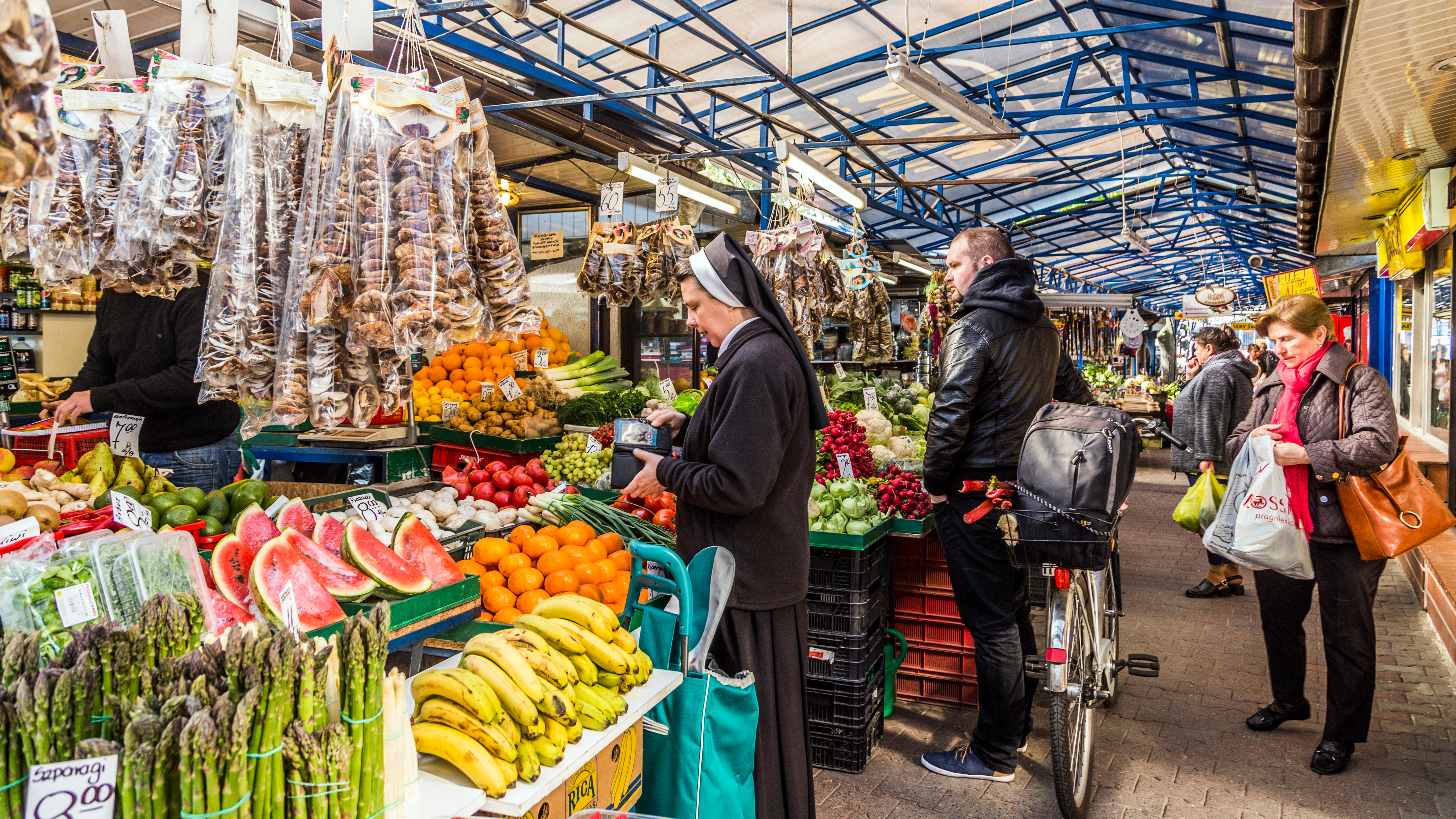Jesus Saves: Religious People Likely To Spend Less On Groceries
Religious people are more likely than us heathens to resist impulse buys at the grocery store. According to an analysis of multiple studies to be published in the Journal Of Experimental Social Psychology, people who report deeper religious convictions spend less on groceries, likely because their beliefs emphasize frugality and restraint. (They know Ben & Jerry's isn't actually sinful, right?)
Researchers evaluated findings from multiple experiments on religion and grocery-shopping behaviors: They found that at both group and individual levels, grocery spending decreased with religiosity. First, they found that people who live in more religious U.S. counties have lower grocery bills and make fewer unplanned purchases when shopping. At an individual level, they also found that people who report being more religious are less likely "to follow through on novel purchase opportunities that arise during their grocery shopping trips."
And it's not just because religious people are avoiding pricey indulgences like alcohol or cigarettes; even in experiments where religious and non-religious people were offered the choice to buy a "non-essential" item like a magazine or chewing gum, religious people were less likely to buy it. According to MarketWatch, one of these individual-level experiments involved participants viewing a clip of a person talking about God, or a person talking about art. The group shown the video related to religion subsequently spent less on an impulse purchase than those who watched the art video.
This seems to indicate that even non-religious people could perhaps benefit from taking a pre-shopping moment to think about spirituality, or God, or the universal energies, or whatever, if they're interested in saving some money at the store. Me, I usually just say this pre-supermarket prayer: "Dear God, please let me pass through the Mallomars display without grabbing four cases amen."
